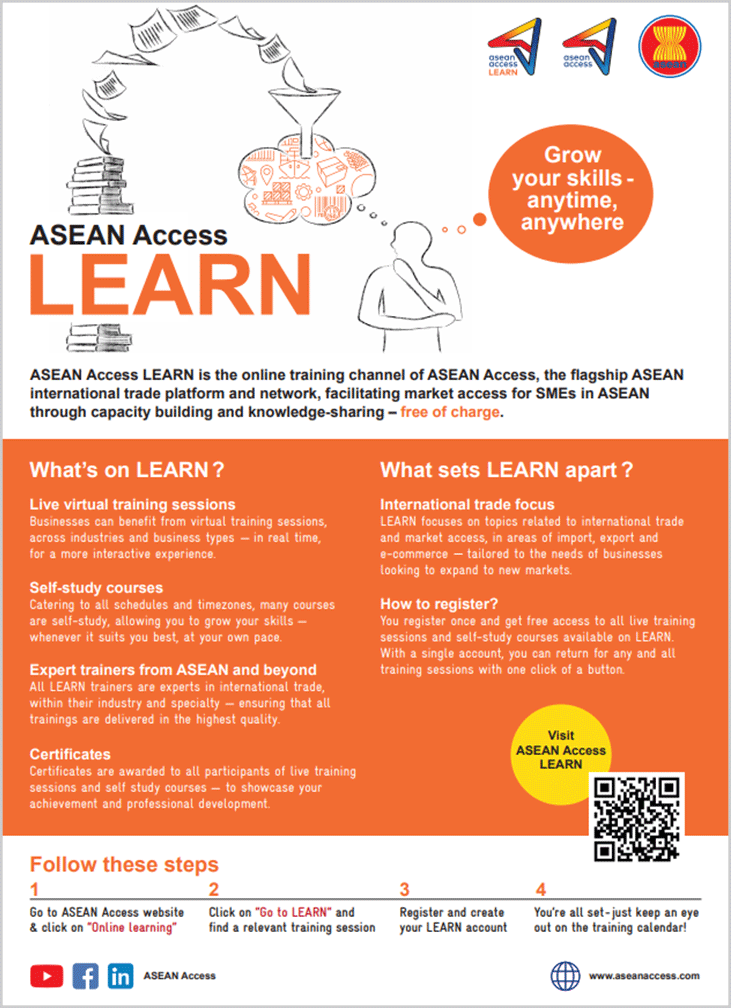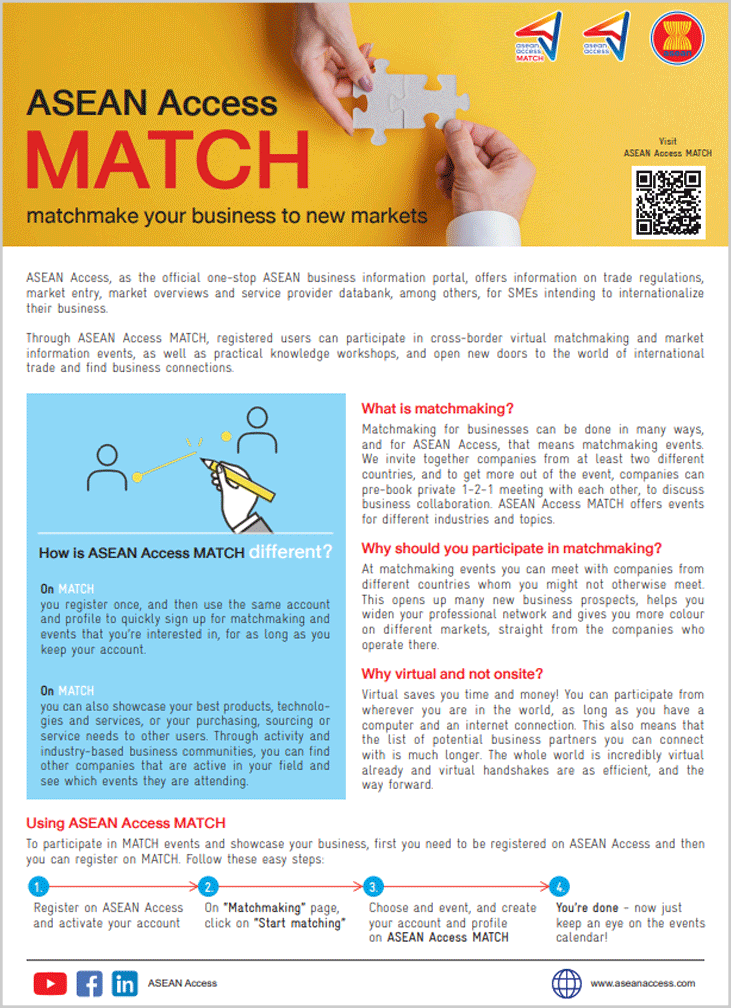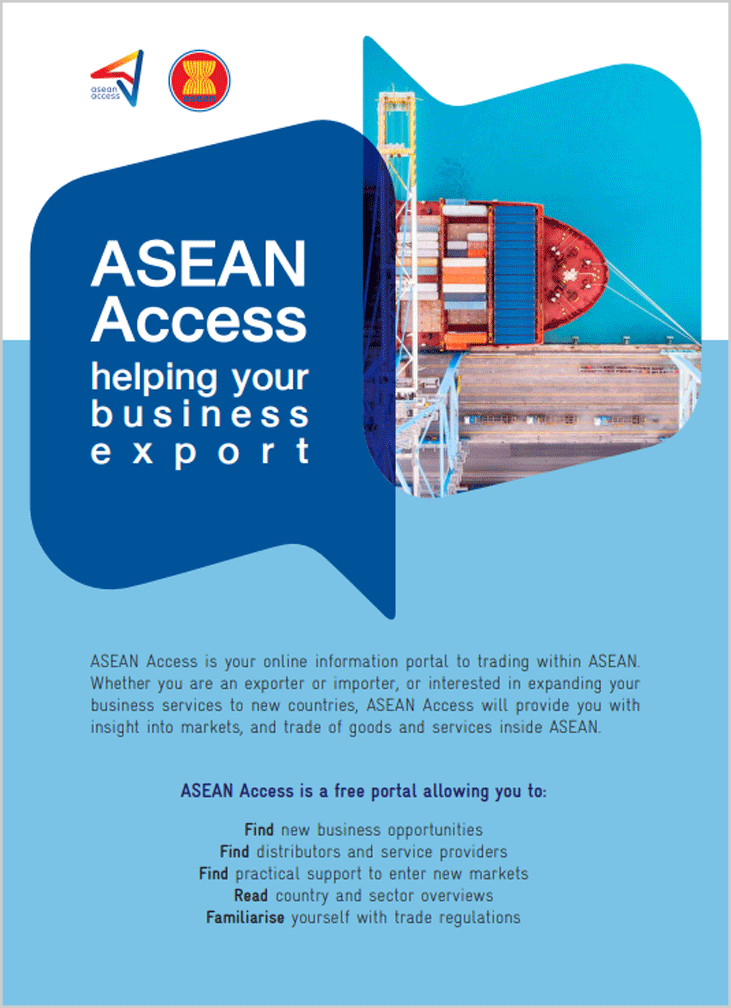
ASEAN Access Stakeholders paved the way towards the future by sharing best practices for utilising and promoting the regional platform. The annual meeting and gathering of the ASEAN Access members held in Bangkok on 27-28 February, brought together 26 representatives from the National Focal Points and Network Partners, including ASEAN Access Ambassadors from the private sector community.
Dr Veerapong Malai, Director General Office of SMEs Promotion (OSMEP), Thailand, Chair of the ASEAN Task Force on SME Service Centre Web Portal, underlined the importance of addressing the sustainability and growth of ASEAN Access post-2025, as well as for all Member States to consider and commit necessary resources, to ensure the ASEAN Access service and the network remain sustainable in the future.
“A strong and collaborative network will be key to the successful and impact-driven future of ASEAN Access,” Dr Veerapong emphasised in his opening remarks. ASEAN Access should continue to be a cornerstone for SME development and success in the ASEAN economic landscape by facilitating access to essential resources, knowledge, and markets.
During the two-day workshop, stakeholders reviewed the progress and plan for the ASEAN Access core features and activities. This includes the MATCH feature, introduced in 2022, designed to support small and medium-sized enterprises (SMEs) in various sectoral industries such as Food and Beverage, Agriculture and Biotechnology, Textile, and Tourism with market talks and virtual business matchmaking, as well as the newly introduced LEARN feature, which focuses on enhancing SMEs’ capacity to participate in cross-border business within ASEAN and beyond.
Since its launch in June 2021, the ASEAN Access platform has grown to encompass over 3,100 members and boasts a broad network of service providers. The development of ASEAN Access and its main features, MATCH and LEARN, is a joint effort with stakeholders across the region, with technical assistance from GIZ through the ASEAN SME II project funded by the German Federal Ministry of Economic Cooperation and Development (BMZ).



